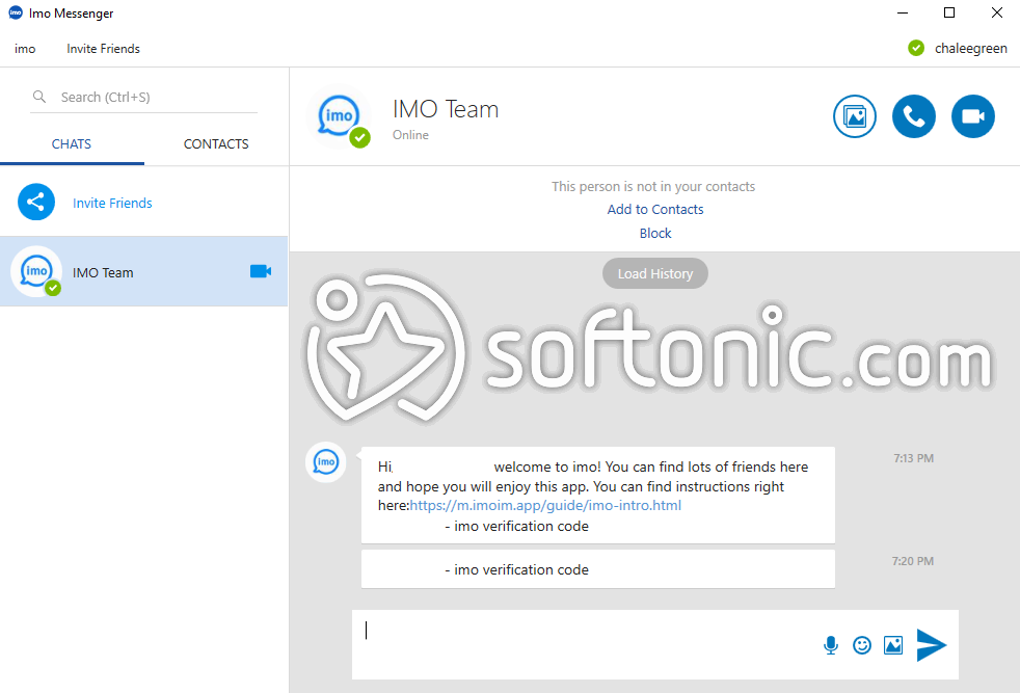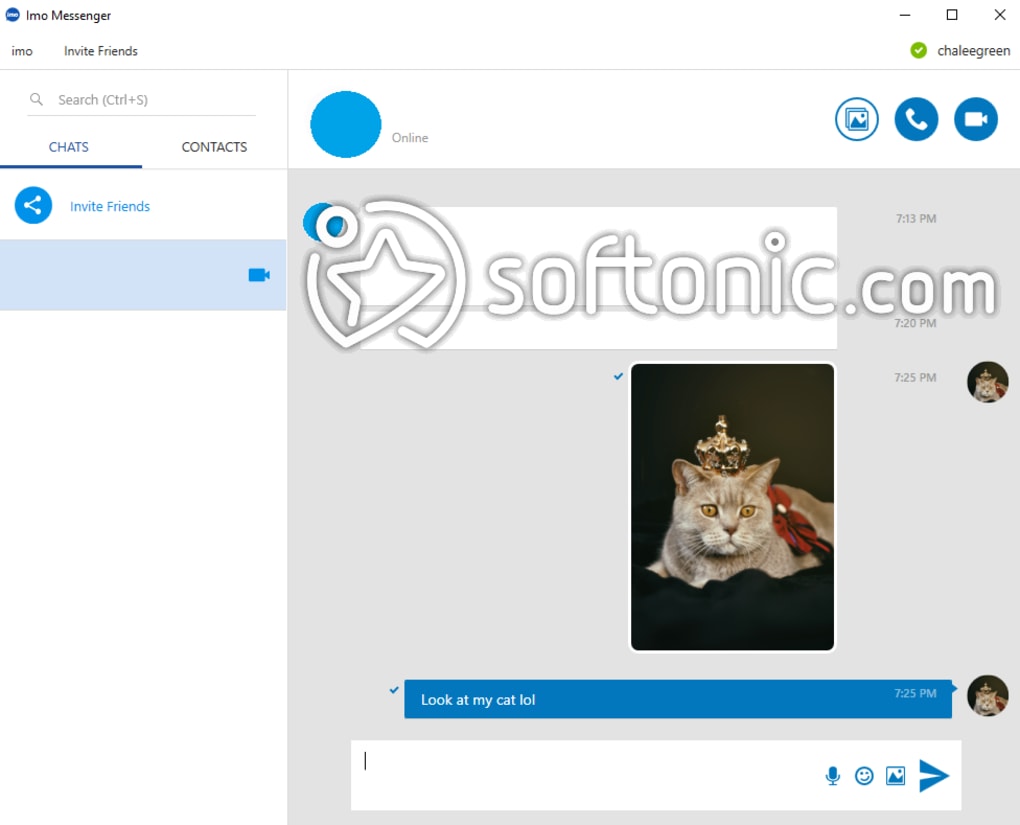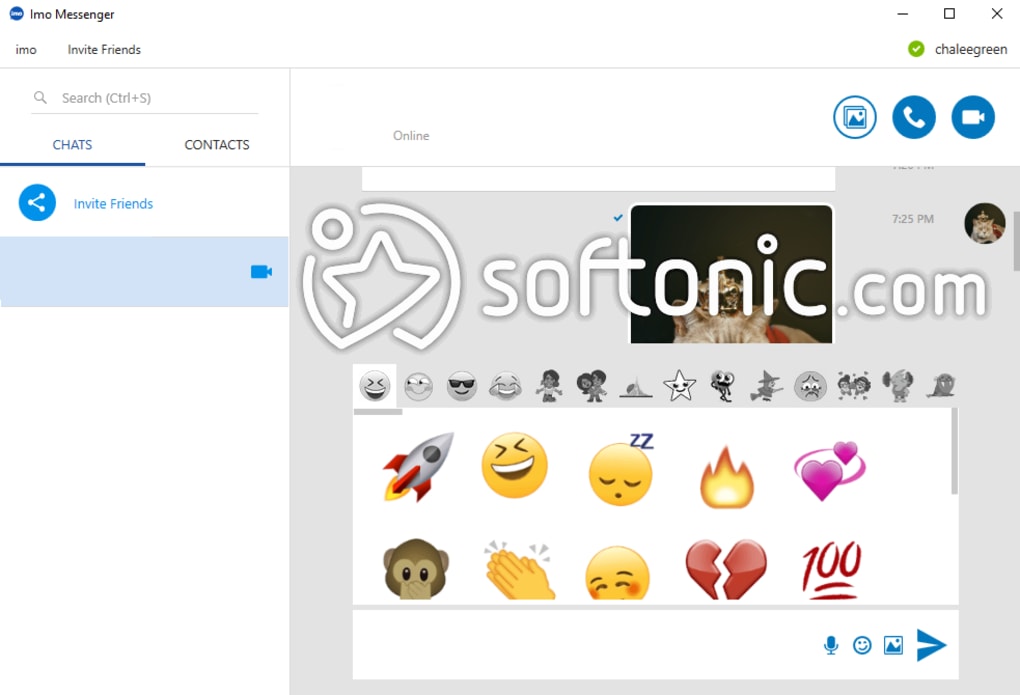imo is a free cross-platform instant messaging application offering text chat, voice calls, and video calls. While aiming to provide a comprehensive communication solution, its performance and security have drawn criticism, leading to questions about its viability as a primary messaging platform in a crowded market dominated by established players. This review delves into the app’s features, strengths, weaknesses, and ultimately, whether it justifies a place on your device.
Features and Functionality
imo’s core functionality revolves around real-time communication. Users can exchange text messages, engage in one-on-one or group voice calls, and conduct video conferences. The app supports file sharing, allowing users to send images, videos, and other file types. A selection of free stickers is available to enhance communication, providing a visual element beyond standard emoticons.
While originally touted for its ability to integrate with multiple messaging services like AIM, Google Talk, MSN, and Yahoo, this feature has been discontinued. Currently, imo functions primarily as a standalone messaging platform, requiring users to add contacts directly within the app. This shift to a standalone model has arguably reduced its appeal, as users are less likely to switch from established platforms unless their contacts are already using imo.

Group communication is a key feature. Users can create groups to facilitate discussions and calls among multiple participants. Both voice and video calls are supported within these group settings, offering a convenient way to connect with extended networks of friends, family, or colleagues. This functionality mirrors that of competing applications, but its efficacy is hampered by the app’s lower overall popularity.
Security and Privacy Concerns
imo’s security and privacy practices have been a significant point of contention. While the app claims end-to-end encryption for calls, the strength of this encryption compared to industry leaders like WhatsApp remains unverified. The lack of transparency around the specifics of their encryption protocol raises concerns about the security of user data.
Further fueling these concerns is the app’s privacy policy, which grants imo broad permissions regarding user content. The policy states that the company may utilize user data in various ways as permitted by its broader privacy policy, potentially allowing for data sharing with third parties. This vagueness raises red flags for users prioritizing data privacy and security. Additionally, the storage of user content on imo’s servers and the use of mobile advertising identifiers further exacerbate privacy concerns.
Performance and Usability
imo’s performance has been inconsistent. Reports from users suggest instability, with occasional glitches and connectivity issues impacting the overall user experience. While the quality of voice and video calls is generally praised when the connection is stable, these occasional performance drops significantly detract from the overall positive aspects of the service. The app’s design is functional, but it lacks the polished aesthetic and intuitive interface found in many of its competitors.
The app’s low popularity presents a significant usability challenge. Convincing friends and family to switch to a less widely used platform can prove difficult, limiting the practical application of the app. This lack of widespread adoption hinders the network effect that is crucial for the success of messaging apps, ultimately making imo less useful unless a large portion of your contacts are already using the service.

Alternatives and Comparison
The landscape of messaging apps is saturated with viable alternatives, each offering different strengths and focusing on various user demographics. The choice of a messaging app often hinges on user preference, security requirements, and the user’s existing network.
WhatsApp: A widely adopted, cross-platform messaging app offering robust security features, including end-to-end encryption. It’s user-friendly, boasts a large user base, and enjoys a strong reputation for reliability.
Discord: Primarily geared towards gamers and communities, Discord excels in server-based communication. It offers private messaging, group chats, voice and video calls, and screen sharing, providing a multifaceted communication experience tailored to online communities.
Skype: A long-standing player in the video conferencing and messaging space, Skype offers a similar suite of features to imo, including text, voice, and video calls. It has the added functionality of allowing for calls using purchased credits, effectively functioning as a replacement for traditional phone services.
Facebook Messenger: Integrated with the Facebook social networking platform, Messenger provides convenient access to communication with Facebook contacts. It offers a comprehensive range of features, including text messages, file sharing, voice and video calls, and the ability to share posts directly from Facebook.

Conclusion: Should You Use imo?
imo presents itself as a viable alternative for basic messaging needs, with high-quality voice and video calls being a notable strength. However, its significant drawbacks, particularly concerning security, privacy, and the instability of its performance, raise serious questions about its suitability for everyday use, let alone sensitive communication. While free stickers and the option for secret conversations are attractive features, they are insufficient to outweigh the inherent risks and limitations posed by the app.
The app’s declining popularity further underscores its limitations. Its failure to maintain its initial cross-platform integration capabilities, coupled with performance inconsistencies, makes it a less attractive option compared to established rivals. Unless a substantial portion of your contacts are already using imo, the effort required to convince others to switch platforms may outweigh the benefits.
Therefore, while imo might serve as a supplementary messaging app for occasional use, it is not recommended as a primary communication platform for business or personal matters requiring strong security and reliable performance. The available alternatives offer a superior blend of functionality, security, and user experience, rendering imo a less compelling choice in the crowded market of instant messaging applications. Users prioritizing security and reliability should opt for established and more widely used platforms like WhatsApp, Skype, or Discord, depending on their specific communication needs.
File Information
- License: “Free”
- Latest update: “April 9, 2025”
- Platform: “Windows”
- OS: “Windows XP”
- Language: “English”
- Downloads: “10.4M”
- Size: “53.10 MB”
















